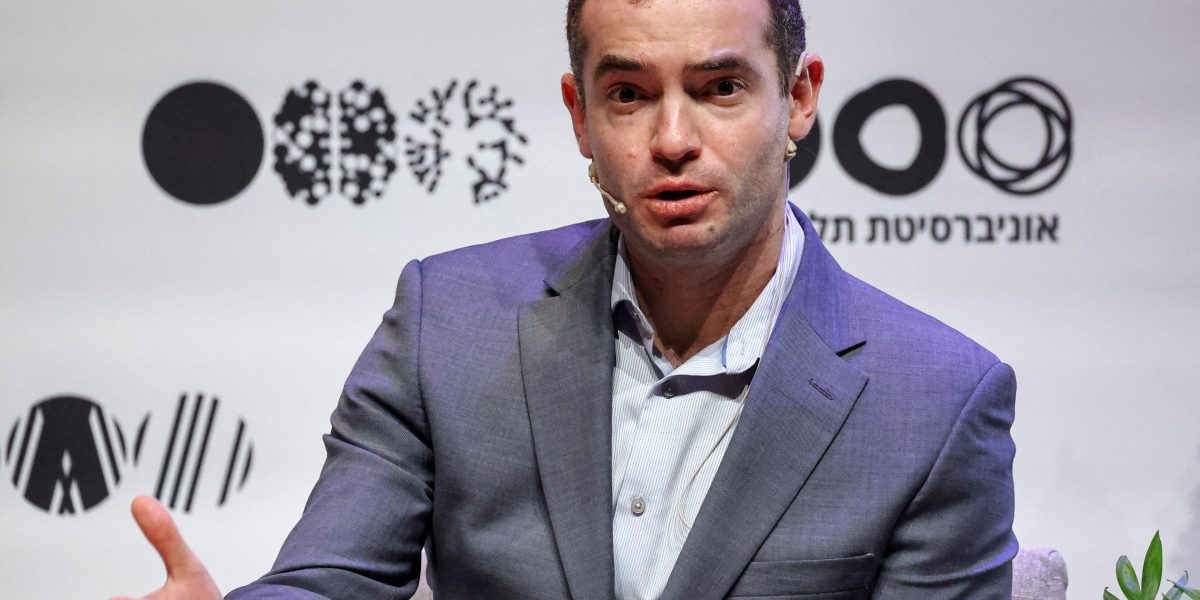More attention is currently directed towards Ilya Sutskever amidst swirling rumors about the recent management changes at OpenAI, which were officially announced last Friday. Sutskever, the chief scientist of the company, also holds a position on the OpenAI board, which recently ousted CEO Sam Altman. He subtly implies that Altman was not consistently transparent about certain matters.
Known for shying away from the media spotlight, Sutskever engaged in an extensive interview with MIT Technology Review last month. During this discussion, the Israeli-Canadian researcher disclosed his renewed focus on averting the potential risks associated with artificial superintelligence—an entity that, to the best of our knowledge, does not yet exist.
Although born in Russia, Sutskever was raised in Jerusalem from the age of five. He was mentored by Geoffrey Hinton, a pioneering figure in the field of artificial intelligence often hailed as the “godfather of AI,” during his time at the University of Toronto.
Earlier this year, Hinton departed from Google and cautioned about the rapid advancement of generative AI technologies like OpenAI’s ChatGPT, warning of potential misuse. He expressed concerns to the New York Times, highlighting the challenges in preventing malicious applications of such technologies.
In a collaborative effort with Hinton, Sutskever contributed to the development of AlexNet, a neural network designed for object recognition in images. This project showcased the remarkable capabilities of neural networks in pattern recognition, surpassing previous expectations.
Impressed by their work, Google recruited Sutskever following their acquisition of Hinton’s venture, DNNresearch. Sutskever’s tenure at Google demonstrated the applicability of pattern recognition principles to language processing, akin to AlexNet’s success in image analysis.
However, Sutskever soon caught the attention of Elon Musk, the prominent figure in AI and CEO of Tesla, who had long voiced concerns about the potential risks associated with AI. Musk, in an interview with the Lex Fridman Podcast, expressed his early apprehensions about AI safety at Google, particularly following its acquisition of DeepMind in 2014.
At Musk’s urging, Sutskever departed from Google in 2015 to join OpenAI as a director and leading researcher. This move was part of Musk’s initiative to establish a prominent presence in the AI domain, distinct from Google’s approach. Despite subsequent disagreements with OpenAI, Musk’s initial endorsement was pivotal to the organization’s success.
Sutskever played a pivotal role in developing significant language models at OpenAI, including GPT-2 and the text-to-image model DALL-E. The subsequent release of ChatGPT in late 2020 garnered widespread popularity, attracting millions of users within a short span. Despite occasional inaccuracies, Sutskever emphasized the model’s potential and its role in showcasing the possibilities of AI.
His current focus lies on mitigating the potential risks associated with AI, particularly concerning the emergence of superintelligent AI surpassing human capabilities, a scenario he envisions within the next decade. Drawing a distinction between superintelligence and artificial general intelligence (AGI), Sutskever underscores the unique challenges posed by superintelligence.
Sources close to the matter revealed that discussions on AI safety were central to the recent management restructuring at OpenAI. Sutskever and Altman held diverging views on the pace of introducing relational AI products and the necessary precautions to minimize potential societal risks.
In an interview with Technology Review, Sutskever stressed the critical importance of ensuring that any developed superintelligence remains aligned with intended objectives, emphasizing the need to avert potential rogue scenarios.
In collaboration with Jan Leike, Sutskever introduced an OpenAI initiative focused on “superalignment,” aimed at directing AI systems towards specified goals or ethical principles to prevent unintended consequences, even in the realm of superintelligence.
For further insights on the impact of AI on businesses, readers are encouraged to subscribe to the Eye on AI magazine, with complimentary registration available.






